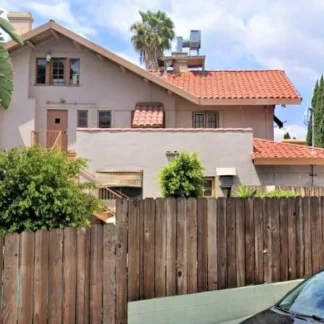Breathe Life Healing Centers
Breathe is dedicated to outstanding trauma-informed clinical care to each client...
Van Ness Recovery House offers residential addiction and mental health treatment for LGBT individuals in Los Angeles, California. They also provide valuable community resources, including referrals and family support services.
Van Ness Recovery House’s treatment begins with a mental health assessment. These assessments help to establish the resident has achieved sobriety and provide an ongoing support plan and counseling to help them sustain their recovery. Other services include:
Van Ness Recovery House is a 20-bed inpatient addiction treatment center for LGBT people. They welcome individuals with HIV and AIDS and provide evidence-based and trauma-informed treatment to LGBT men and women over 18.
Van Ness Recovery House is a structured recovery residence for LGBT people in early recovery. The program supports individuals to abstain from substances, learn new coping skills and relapse prevention strategies, access medical treatment, and develop a recovery community. The support team also connects residents to stable housing and employment resources.
Van Ness Recovery Home is a private pay facility but also offers sliding scale payment assistance. You’ll want to contact their admissions team to determine your eligibility.
Contact us for more information: (323) 463-4266

Connect with Van Ness Recovery House by calling their admissions team directly.
(323) 463-4266 Website Get DirectionsTrauma therapy addresses traumatic incidents from a client's past that are likely affecting their present-day experience. Trauma is often one of the primary triggers and potential causes of addiction, and can stem from child sexual abuse, domestic violence, having a parent with a mental illness, losing one or both parents at a young age, teenage or adult sexual assault, or any number of other factors. The purpose of trauma therapy is to allow a patient to process trauma and move through and past it, with the help of trained and compassionate mental health professionals.
Breathe is dedicated to outstanding trauma-informed clinical care to each client...
Covenant House California offers housing programs and outpatient medical and men...
Children’s Bureau - Magnolia Place Family Center, in Los Angeles, California, of...
Synergy Sober House is a private rehab located in Los Angeles, California. Syner...